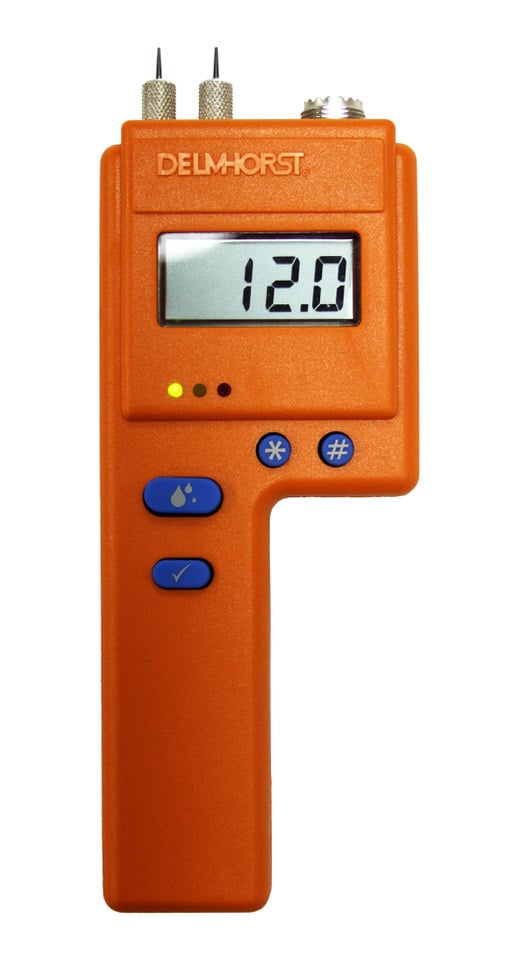Just How a Moisture Meter Can Enhance Your Building And Construction Jobs and Avoid Damage
Just How a Moisture Meter Can Enhance Your Building And Construction Jobs and Avoid Damage
Blog Article
The Ultimate Guide to Moisture Meters: A Comprehensive Overview and Just How They Can Conserve You Money
In the realm of building maintenance, building, and various industries, the relevance of properly determining moisture degrees can not be overemphasized. Moisture meters serve as indispensable tools in spotting and keeping track of moisture web content in materials, assisting in stopping costly problems and making sure the high quality of items. Understanding the nuances of various types of dampness meters, their applications, and the prospective cost-saving benefits they provide can be a game-changer for businesses and specialists alike. Uncovering how these gadgets can not only simplify processes yet likewise add to economic savings is a trip worth starting.
Sorts Of Moisture Meters
One typical kind is the pin-type moisture meter, which determines the electrical resistance in between 2 pins put right into a product. Pinless dampness meters, on the other hand, use electro-magnetic sensing unit plates to check a bigger area without causing damage to the product's surface area.
Furthermore, there are additionally specialized dampness meters designed for particular materials like grain, hay, or soil. These meters provide accurate wetness analyses customized to the unique homes of the product being checked. Infrared wetness meters gauge the thermal properties of a material to determine its moisture content non-invasively, making them helpful for applications where pin or pinless meters may not appropriate. Comprehending the various kinds of wetness meters offered can assist markets select the most appropriate tool for their details moisture dimension demands.

Advantages of Utilizing Moisture Meters

Furthermore, utilizing dampness meters can result in boosted power effectiveness. By recognizing areas with high moisture degrees, such as leakages or bad insulation, adjustments can be made to improve energy preservation and reduce utility costs. In agricultural setups, wetness meters play an essential function in maximizing plant returns by enabling farmers to keep an eye on soil wetness degrees and make educated irrigation decisions. Overall, the advantages of making use of moisture meters span across different sectors, offering cost-efficient solutions and promoting better high quality control practices.
How to Choose the Right Moisture Meter
Selecting the appropriate wetness meter involves considering key factors such as product compatibility, dimension range, and calibration accuracy. When choosing a moisture meter, it's vital to guarantee that the meter is appropriate for the details product you will be screening. Various materials have varying electric residential properties that can impact moisture analyses, so choosing a meter designed for your material is important for accurate outcomes. Furthermore, think about the measurement series of the wetness meter. Guarantee that the meter can spot wetness levels Going Here within the array required for your applications. Calibration precision is one more critical factor to maintain in mind (Moisture Meter). Go with a moisture meter with trusted calibration to make sure precise and consistent analyses. Some meters might need routine calibration modifications, so understanding the calibration process is necessary. By very carefully evaluating these aspects, you can select a moisture meter that satisfies your demands and offers precise dampness dimensions for your projects.
Appropriate Strategies for Moisture Meter Usage
To make sure precise wetness readings and optimize the efficiency of a moisture meter, utilizing proper strategies is crucial. When utilizing a pin-type moisture meter, put the pins or probes into the product being checked until they make full get in touch with. By following these correct techniques, users can depend on their moisture meter to supply trustworthy wetness degrees, helping in preventing pricey damage or making sure top quality in different applications.

Expense Financial Savings Via Moisture Meter Applications
How can the critical usage of wetness meters lead to substantial price savings across various markets? In the farming industry, dampness meters help in identifying the optimal time for collecting plants, avoiding excess or over-drying moisture that can impact the final item's high quality.

In addition, in the food processing industry, moisture meters are necessary for checking product quality and making sure compliance with security policies. By accurately determining moisture material in food, suppliers can prevent putridity, maintain quality, and reduce waste, causing significant expense financial savings. In general, the strategic application of dampness meters is a useful investment that can lead to considerable cost decreases and boosted performance throughout various sectors.
Conclusion
In final thought, dampness meters are beneficial devices for detecting and gauging wetness levels in over at this website different products. By making use of the best wetness meter and following appropriate strategies, customers can successfully stop expensive problems created by excess moisture.
Wetness meters offer as crucial tools in finding and checking moisture content in materials, helping in preventing costly damages and ensuring the quality of items. Infrared wetness meters determine the thermal buildings of a product to establish its dampness material non-invasively, making them beneficial for applications where pin or pinless meters might not be appropriate.Wetness meters supply invaluable benefits in precisely evaluating and monitoring moisture degrees in varied products and atmospheres. In agricultural settings, moisture meters play a critical role in maximizing crop yields by allowing farmers to keep an eye on soil moisture degrees and make notified irrigation choices.In verdict, wetness meters are useful devices for identifying and measuring moisture levels in various products.
Report this page